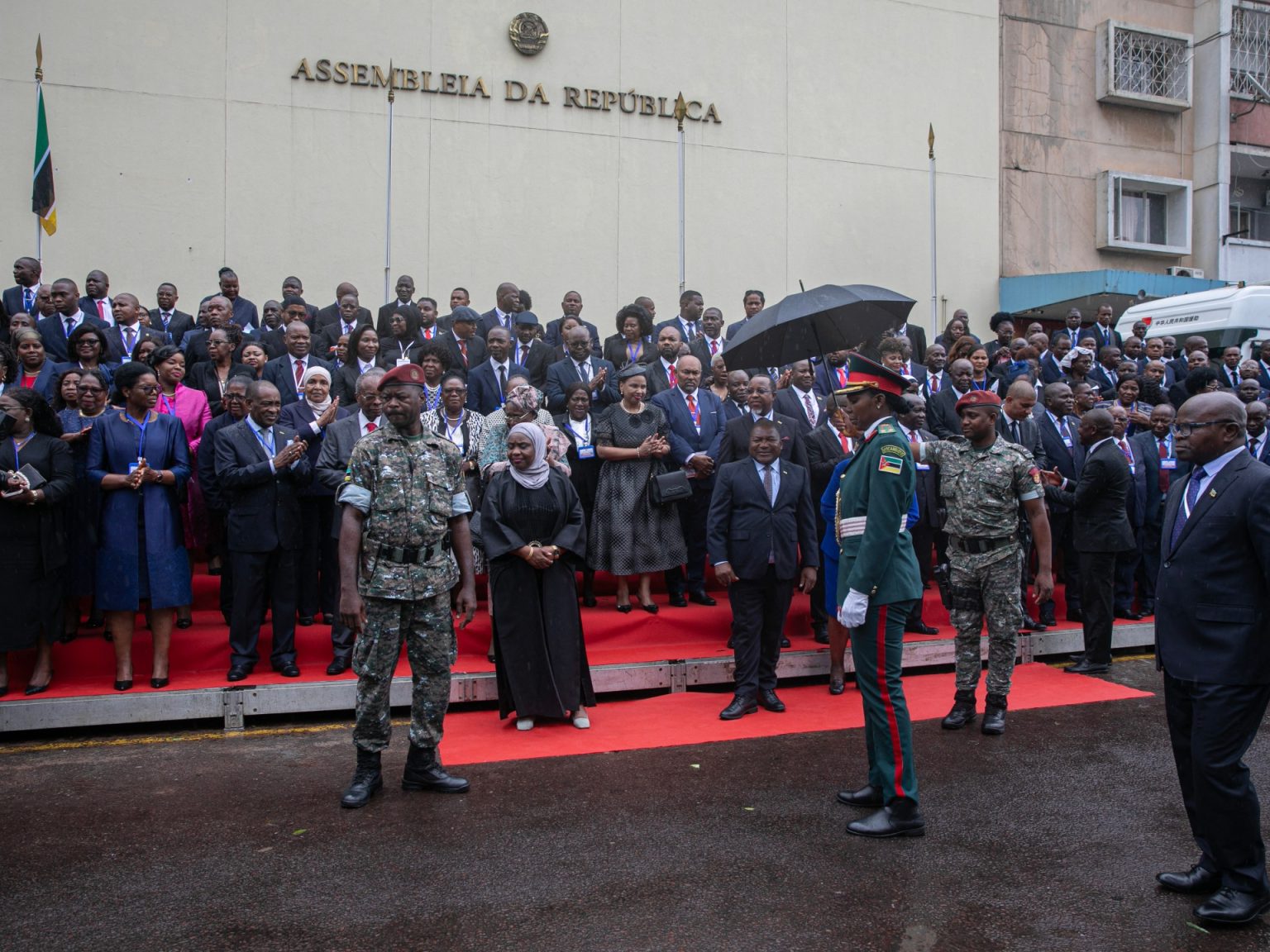The inauguration of Mozambique’s new parliament unfolded against a backdrop of simmering political tension and public dissent. Opposition leader Venancio Mondlane, contesting the results of the October elections, called for a nationwide strike, urging his supporters to boycott the proceedings and demonstrate their rejection of what he claimed was a rigged victory for the long-ruling Frelimo party and its presidential candidate, Daniel Chapo. The streets of the capital, Maputo, were largely deserted as the inauguration ceremony commenced, a stark contrast to the usual Monday morning bustle. Shops remained closed, barricades punctuated certain areas, and protesters clashed with security forces attempting to maintain order. The palpable tension underscored the deep divisions within the country following the disputed elections.
The opposition’s boycott of the parliamentary inauguration was a significant act of defiance. Two smaller opposition parties, Renamo and MDM, joined Mondlane’s call for protest, refusing to recognize the legitimacy of the election outcome. Their absence from the 250-seat national assembly left only Frelimo and the smaller Podemos party to participate in the swearing-in ceremony. This act of protest aimed to highlight the opposition’s claims of electoral manipulation and their demand for a transparent and fair recount. The boycott further solidified the political divide, raising concerns about the stability and unity of the nation moving forward.
Mondlane’s return to Mozambique after a period of self-imposed exile further fueled the unrest. His arrival was met with enthusiastic support from thousands of followers, who rallied in the city center, leading to clashes with security forces. These clashes, unfortunately, resulted in fatalities, adding to the growing number of lives lost in post-election violence. The escalating unrest underscored the fragility of the political situation and the urgent need for dialogue and reconciliation.
The disputed election results lie at the heart of the current crisis. Official figures declared Chapo the winner with 65% of the vote, while Mondlane received 24%. However, Mondlane contests these figures, claiming he secured 53% of the vote and accusing electoral institutions of manipulating the results in favor of Frelimo, which has held power for 50 years. This stark discrepancy in reported results has fueled mistrust and suspicion, contributing to the escalating tensions and violence.
Despite the ongoing unrest, Chapo, the incoming president, appealed for calm and unity. He emphasized the need for stability to facilitate national development and called for open and frank dialogue to address the political impasse. However, Mondlane’s exclusion from initial talks with Chapo and outgoing President Filipe Nyusi has further complicated the situation. While Mondlane has expressed his willingness to engage in dialogue, the lack of inclusivity in these initial discussions has raised concerns about the prospects for genuine reconciliation and a peaceful resolution to the crisis.
The political turmoil in Mozambique has extended beyond the political sphere, impacting the country’s economy. The unrest has disrupted cross-border trade, affecting shipping, mining, and industrial activities, resulting in significant economic losses. The ongoing instability threatens to further exacerbate the economic challenges facing the nation, highlighting the interconnectedness of political stability and economic prosperity. The urgent need for a peaceful resolution to the political crisis is not only crucial for the democratic future of Mozambique but also for its economic recovery and sustainable development. The call for dialogue and inclusive negotiations remains a crucial step towards restoring stability and building a united future for the nation.

